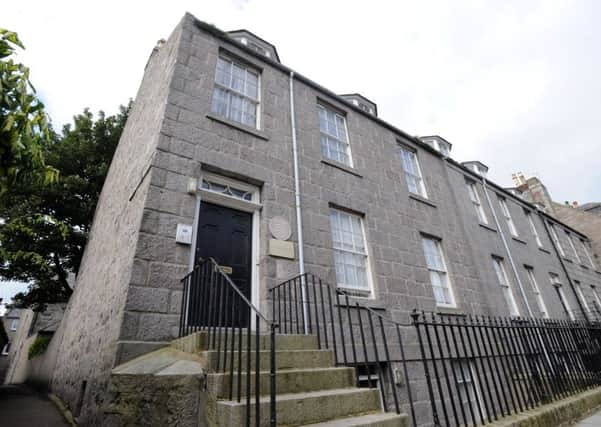Aberdeen centre for vulnerable people facing closure


It aims to keep vulnerable people out of hospital beds and jail cells by giving them beds for the night.
But now Albyn House in Aberdeen faces the prospect of closing its doors after more than 30 years of service.
Advertisement
Hide AdAdvertisement
Hide AdPolice Scotland and NHS Grampian have confirmed their intention to withdraw their funding for the centre by April 2016.
However, the centre has gained the support of local politicians and the public, with a petition calling for it to remain open reaching 2,500 signatures.
Alison McInnes, Scottish Liberal Democrats MSP for North East Scotland, has warned of the risks of closing the centre.
She said: “Staff at Alcohol Support told me that at this time of year especially, they are so glad to be able to provide a warm place for those who are alcohol-addicted and resultantly homeless.
“Without their service, some would be condemned to trying to exist wearing the same damp clothes for weeks on end, without access to a shower or any respite from the cold.
“But there is a real risk these essential services could come to an end in Aberdeen.
“They should be being rolled out across Scotland, not being cut back.
“These facilities allow the NHS, Police Scotland and the Scottish Government to save rather than spend, as they free-up beds in hospitals and keep cells for criminals.
Advertisement
Hide AdAdvertisement
Hide Ad“What’s more is that if the core funding is lost, the other services provided by volunteers such as counselling and other support available for alcoholics could also be lost.”
• READ MORE: Major social care crisis looming as workers quit
Maureen Watt, public health minister and the Scottish National Party MSP for Aberdeen South and North Kincardine, believes funds should be allocated by local experts.
She said: “Alcohol and Drug Partnerships (ADP) and local partners, taking account of local needs and priorities, allocate funding locally.
“There is no single best practice model for services for drunk and incapable people.
“Services should be developed directly in response to local needs, as determined by ADPs, and remain flexible when needs change.
“The Scottish Government has made a record investment of #319m to tackle problem alcohol use since 2008.
“The bulk of our funding - #278m - has been made to ADPs via NHS boards for investment in local prevention, treatment and recovery support services.”
Advertisement
Hide AdAdvertisement
Hide AdA spokesman for Police Scotland said: “The ADP, including NHS Grampian, Police Scotland, Aberdeen City Council, and the Aberdeen Council of Voluntary Organisations, made a joint decision in October 2014 that a Designated Place of Safety (DP) for people found drunk and incapable does not represent value to the public.
“The ongoing cost is unsustainable and does little to prevent re-occurrence of public drunkenness.
“The ADP has agreed that there are alternative, better integrated and more cost effective ways of dealing with the problem.
“The ADP will therefore not go to competitive procurement for the future provision of a DP when the current contract with Alcohol Support Ltd comes to an end on 15th April 2016.”